Underst ry The
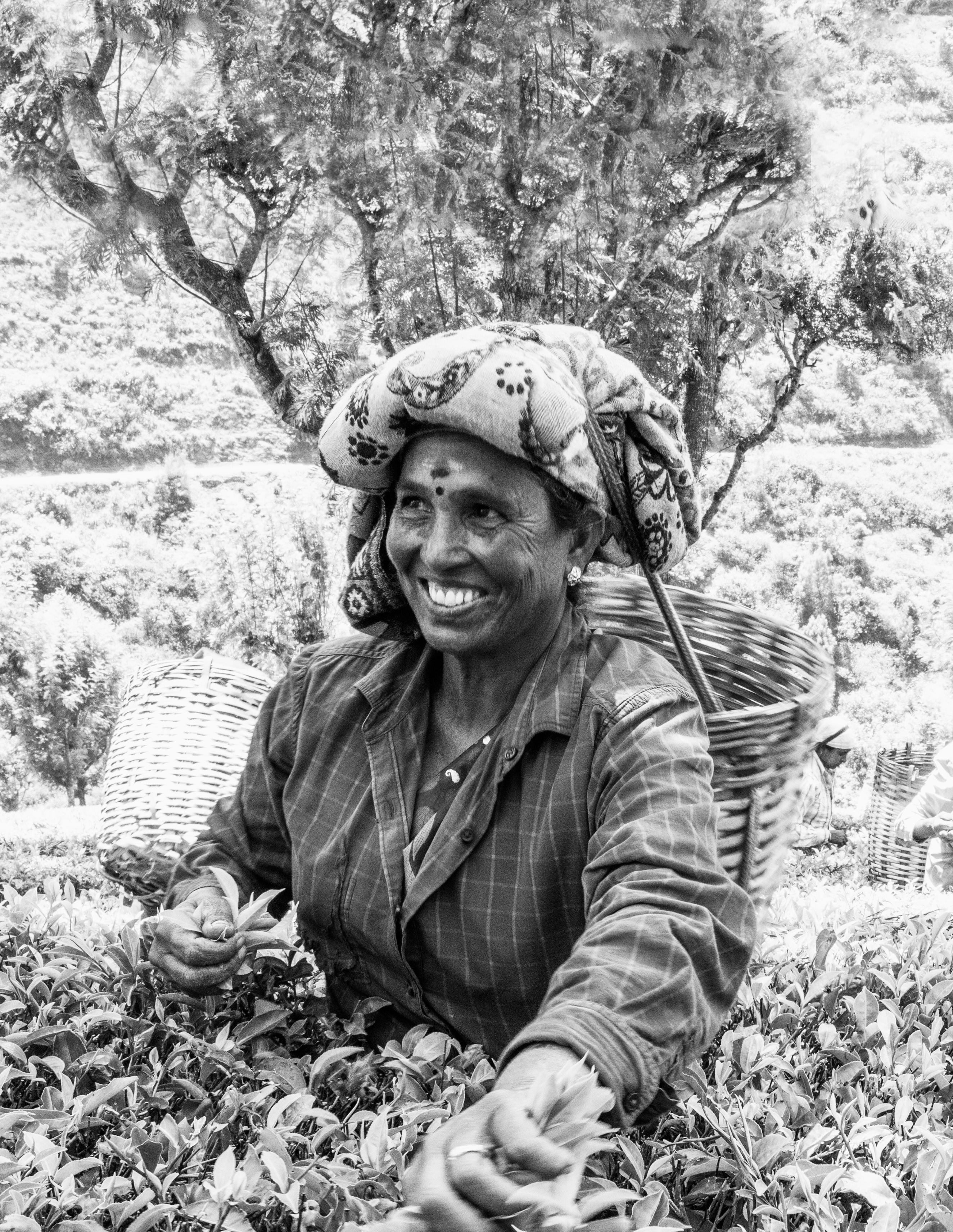
OUR SHARED
ISSUE 5 AUTUMN 2022
HOME
AUTUMN 2022 ISSUE 5 Welcome to The Understory The Rainforest Alliance’s newsletter for the passionate supporters who share our mission to create a better future for people and nature. un·der·sto·ry [noun]: A layer of vegetation beneath the main canopy of a forest A MESSAGE FROM OUR ALLIANCE Caroline Bernal-Silva, Director of Philanthropy SNAPSHOT Follow The Frog 2022 OUR ALLIANCE IN ACTION Harnessing Ancestral Skills to Boost Incomes in Peru & Our New Community Listening Program FEATURE STORY What’s A Certain Path to Sustainability? Advancing Gender Equality MEET OUR ALLIANCE MEMBERS Cathy Ludden and Eric Rothenberg & Anita Nanda JOIN OUR ALLIANCE Our 35th Anniversary, Coffee Klatch & Legacy Estate Planning CONTACT US IN THIS EDITION:
OUR MISSION:
The Rainforest Alliance is an international non-profit organization creating a more sustainable world by using social and market forces to protect nature and improve the lives of farmers and forest communities.
ABOUT THE RAINFOREST ALLIANCE:

2.3 million +
farmers in our certification program active projects directly benefiting farmers, forest communities, and nature
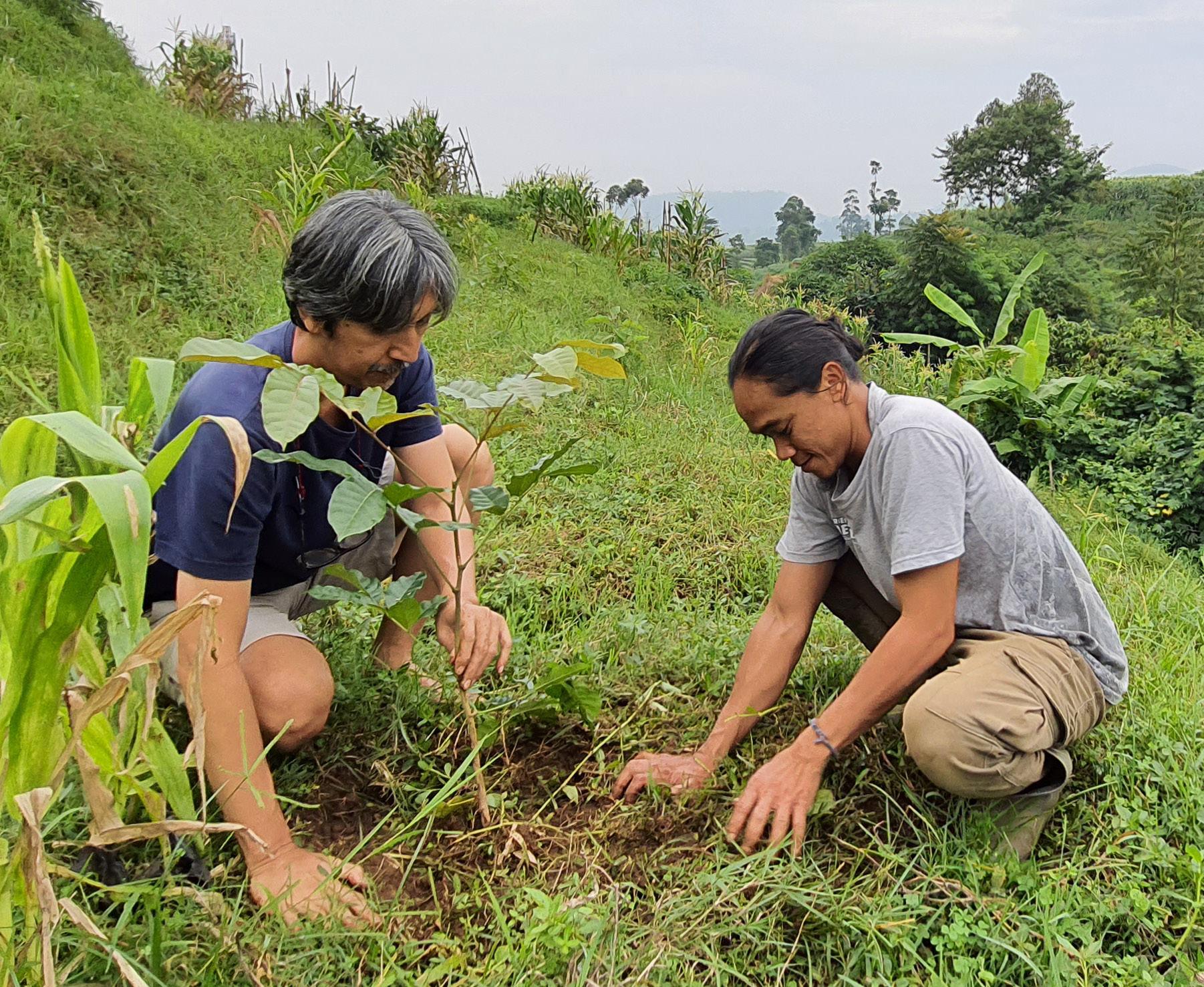
70 6.8 million +
countries around the world with active projects and/or certified farms
68 5,000 +
hectares of global farmland certified against our sustainability standards
companies working with us to source certified ingredients and improve their business practices
Our multifaceted approach to shaping a more sustainable world:

CERTIFICATION
We certify products that are grown in accordance with our standards, which support environmental, social, and economic sustainability.
SUPPLY CHAIN SERVICES
We advise companies on how to drive sustainability within their supply chains, source responsibly, monitor progress, and innovate to accelerate transformation.
LANDSCAPE MANAGEMENT
We work with farmers and forest communities to conserve and restore landscapes while improving livelihoods.

ADVOCACY
We work with companies and governments to advance policies that promote sustainability improvements, human rights (such as gender equality), and youth education.
A MESSAGE FROM OUR ALLIANCE
A MIlESTONE YEAr
fOr Our AllIANcE
BY CAROLINE BERNAL-SILVA | DIRECTOR, PHILANTHROPY

As we reflect proudly on 35 years of the Rainforest Alliance, we find ourselves equally inspired by the possibilities of the future. We asked Caroline Bernal-Silva, Director of Philanthropy, what this milestone means to her.
Leading up to this anniversary year, we at the Rainforest Alliance spent many a month deciding how to properly reflect on and celebrate this incredible milestone. As others brainstormed around me, I kept coming back to one word: home. As a mom of a ten-month-old, I have a newfound and heightened awareness that we have inherited the planet from those who came before, and that we will leave it to those who follow. As I write on my front porch, I cannot help but reflect on how nature comforts and sustains us, just as a good parent does. But it also teaches us that we are part of something bigger than ourselves, an interconnected web of life. We need each other to thrive.
The way I see it, whether we live in a city or on a farm, in the woods or by the sea, the Earth is our ultimate home—one we share with every living being. This home nurtures us, and we revel in its beauty and generosity. A tropical forest’s kaleidoscope of color. The laughter of a child playing in the rain. The stillness
4 | THE UNDERSTORY
“As a mom of a ten-month-old, I have a newfound and heightened awareness that we have inherited the planet from those who came before, and that we will leave it to those who follow. ”
of an ancient tree, its silence punctuated only by birdsong. Our existence is interconnected, and if we want the planet to sustain us, we must protect it in return. This includes advancing the well-being and livelihoods of all our family members, especially those who cultivate the land and protect the natural world. That is why the Rainforest Alliance works tirelessly to advance the rights of rural communities around the globe.
The next decade will be absolutely crucial for protecting our planet against climate change, and stopping—and even reversing—biodiversity loss. By 2030, we envision a future where the world’s most important landscapes are stewarded by thriving farming and forest communities who are at the root of our collective strength.
The magic of our work comes from this powerful global alliance. Standing shoulder to shoulder with our allies, we have improved living and working
conditions for millions of people in 70 countries; boosted the livelihoods of farmers and community forestry businesses; and helped to enhance the management of more than 10 million hectares of land around the world. But there is still much more to be done.
A hurdle we face now is funding to accelerate our work at the scale necessary to halt climate change. But, together, we can deepen, accelerate, and scale our collective impact. With our deep expertise and strong partnerships, the Rainforest Alliance is wellpositioned to regenerate landscapes and transform broken systems. As we close out our 35th year, we invite you to join us at this critical moment with a donation to protect the planet and our entire global family. With your support, we will keep our shared home healthy and thriving for generations to come.

ISSUE 5 | AUTUMN 2022 | 5
SCHOOLCHILDREN AT EL PORVENIR ELEMENTARY SCHOOL IN PETÉN, GUATEMALA.
PHOTO: SERGIO IZQUIERDO
and individual daily practice. That’s why, every autumn, we run a week-long brand awareness campaign, lovingly named “Follow the Frog.”
This year, our campaign ran from September 26 – October 2, and it was bigger and better than ever! With the theme “The Journey Starts in Your Hands,” we invited our friends and supporters to “follow the frog” all the way from their kitchens or local supermarkets to the farms where it all starts. Our goal: to show people how small changes in our daily lives can have a big impact for global sustainability.
Throughout the week, we shared inspiring success stories across our social channels, highlighting the farmers and global partners working with us to create a better future for people and nature.
Follow the Frog is also a great opportunity for our company partners to showcase their sustainability commitments. Brands from all over the globe celebrated their work with us—from promoting products with the Rainforest Alliance seal to sharing stories about the projects we collaborate on. Highlights include our “Ask the Tea Experts” video together with Lipton, Pickwick, and Fuze Tea, a LinkedIn Live event co-hosted with Nestlé, in-store fun with McCafé Brazil, and the launch of Nespresso’s Empty Cup campaign on climate change, featuring George Clooney.
fOllOw THE frO g 2022: THE JOurNEY STArTS IN YOur HANDS 6 | THE UNDERSTORY SNAPSHOT: FOLLOW THE FROG 2022 23.6M OvErAll rEAcH 21 pArTNEr cOllAbOrATIONS 45 INfluENcErS 124M MEDIA OuTrEAcH FOLLOW THE FROG 2022 IN NUMBERS:
Whether it’s chocolate, coffee, tea, or fruit, whenever someone chooses a product with our little green frog seal, we want them to think of it as the first step of a much bigger sustainability journey— one of collective awareness




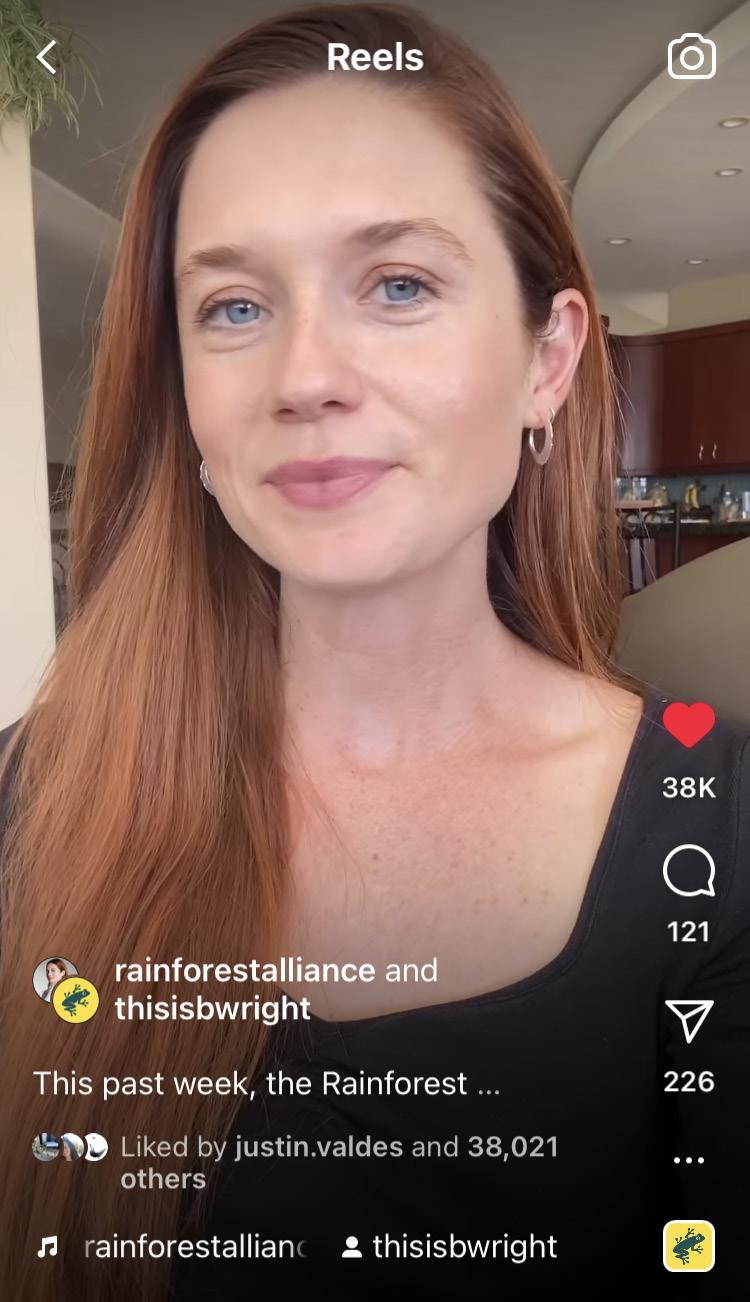






ISSUE 5 | AUTUMN 2022 | 7
OUR ALLIANCE IN ACTION
The Rainforest Alliance has always made it a priority to partner with—and learn from— Indigenous peoples, who have an unsurpassed connection to the Earth’s forests. In Peru, this work has a strong emphasis on women’s entrepreneurship. The goal: harnessing ancestral knowledge to build thriving women-led businesses, rooted in sustainability. A prime example is Warmi Awadora, a brand of textiles developed by a collective of Kichwa women in San Martín, a biodiversity-rich region between the Cordillera Escalera protected area and the Amazon Basin.

Using traditional techniques, these women weave colorful fabrics from cotton that has been grown in harmony with the region’s forests. From these textiles, they create items like bags, belts, and
necklaces, the sale of which supplements the income their husbands earn from farming and other work. The enterprise is also a form of cultural preservation. “If [our children] don’t continue with the textiles,” says President Lisida Ishuiza Tapullima, “the tradition will be lost, and the Kichwa communities and culture will be lost, too.”
To support their success, the Rainforest Alliance has provided training in business management and digital skills, including how to use social media and ship their products around the world. This knowledge has been particularly crucial during the pandemic, which has limited their ability to sell directly to tourists during visits to their communities.
HArNESSINg ANcESTrAl SkIllS TO bOOST INcOMES IN pEru 8 | THE UNDERSTORY
Our NEw cOMMuNITY lISTENINg prOgrAM
Whether it’s a young coffee farmer preparing for his first certification audit, the single mother who manages her community’s plant nursery, or the cocoa farmer working to increase tree cover on his land—these are the people who drive our global alliance and whose perspectives we seek to hear through our new Community Listening Program.
The program, which is now being rolled out across Ghana, Guatemala, and Mexico, sets out to gather, analyze, and incorporate the knowledge of the farming and forest communities at the heart of our mission. Community members that participate in our listening program will share feedback on three main areas: their working relationships; implementation of our programs; and external challenges, such as economic, social, and environmental concerns that affect their lives.
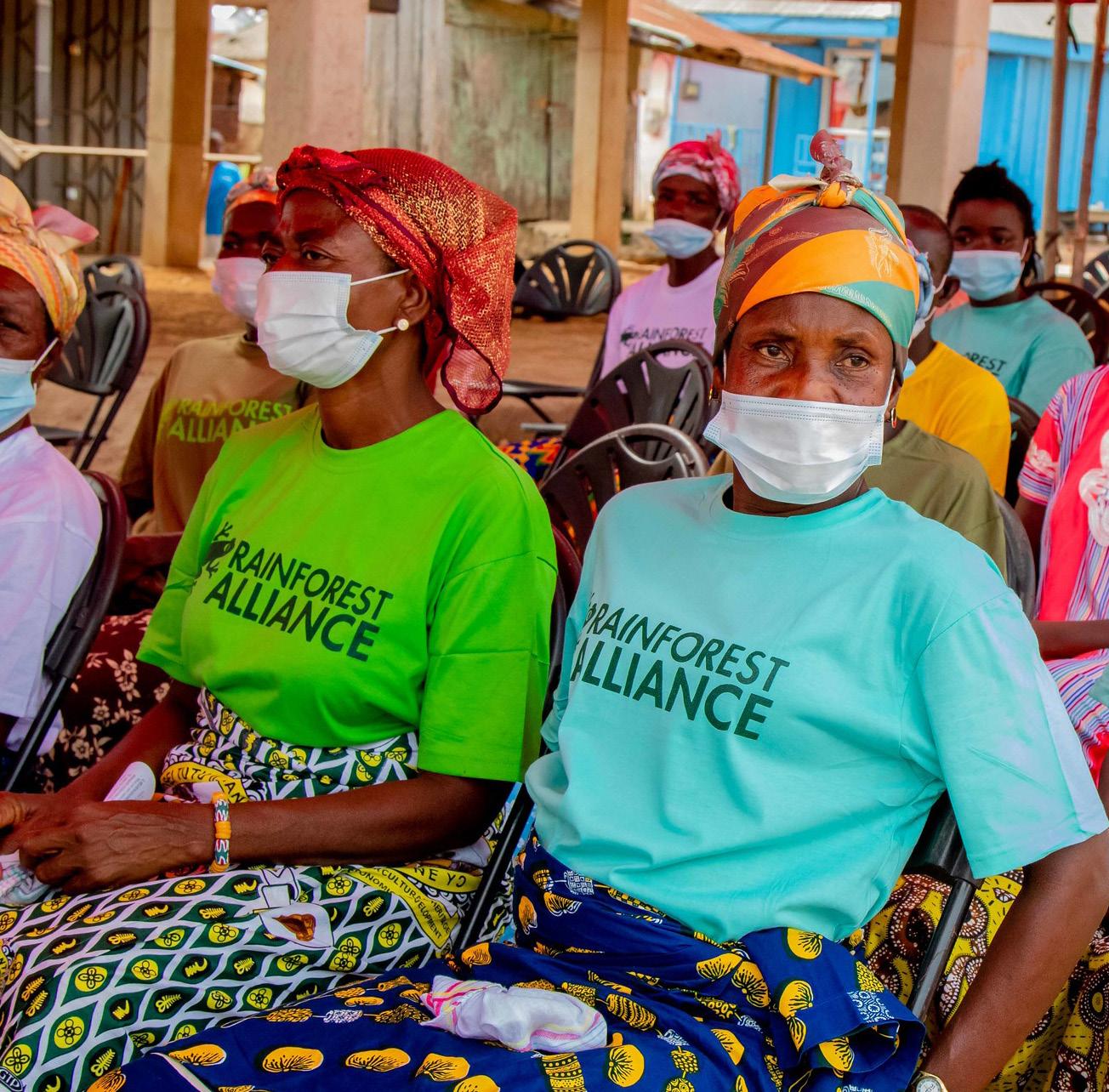
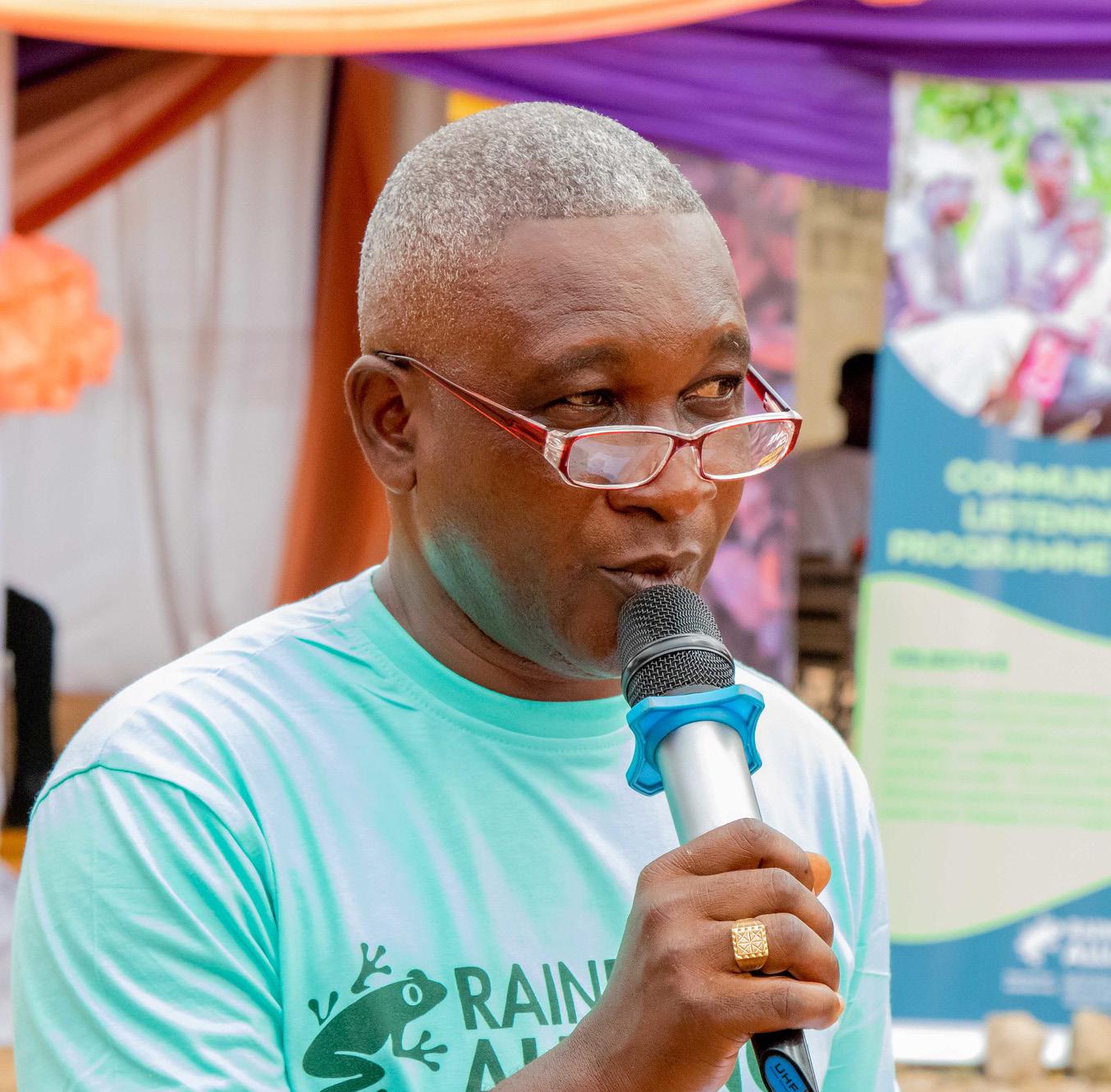
This information will be gathered using a variety of research tools, including workshops, questionnaires, and direct interviews with community members, conducted in the local language.
One of the many inspiring voices we’ve heard from belongs to Juana Melendez, a member of Grupo Ixcanaan in Guatemala, a cooperative that has received Rainforest Alliance training and support. The group consists of 16 women entrepreneurs who produce handicrafts, vegetables, and eggs. “I am an old woman,” says Melendez. “I want people to know what is needed here, because we are working people, and the land is our life.”
ISSUE 5 | AUTUMN 2022 | 9
FEATURE STORY
If women farmers were to have equal access to resources, education, financing, and land rights, they could increase the yields on their farms by 20 to 30 percent.

A sustainable future is only possible if women and girls can thrive. In 2015, the United Nations recognized the urgency of advancing gender equality—and its importance to sustainability— by including it as a goal in the 2030 Agenda for Sustainable Development. But a 2022 report on this goal (Sustainable Development Goal 5: Achieve gender equality and empower all women and girls) showed a backslide instead of progress: The fallout of the COVID-19 pandemic had especially affected women and girls, leaving the world further behind on reaching this goal.
As with the climate crisis, solving gender inequality isn’t a simple fix. It will take steady collective action to transform oppressive systems and advance the rights of women.
Women’s rights and sustainable agriculture
Through our decades of experience, the Rainforest Alliance has seen that the contributions of women have countless positive effects locally, nationally, and globally. Our food system is no exception. Amid a worsening climate crisis and looming food shortage, the role of women in agriculture is more
wHAT ’S A cErTAIN pATH TO SuSTAINAbIlITY? ADvANcINg gENDEr EquAlITY 10 | THE UNDERSTORY
critical than ever. According to the UN Food and Agriculture Organization, if women farmers were to have equal access to resources, education, financing, and land rights, they could increase the yields on their farms by 20 to 30 percent. The FAO also found that this could lead national agricultural production to rise by 2.5 to 4 percent. The number of malnourished people globally could decrease by 12 to 17 percent.
Despite the power and potential that women hold, matters of bodily autonomy, land rights, fair division of labor, safety, equal opportunities and income, and decision-making power leave them routinely disadvantaged. We need to address these factors if we hope to make a lasting impact on gender equality and the multiple issues it affects.
Our approach to advancing gender equality
Supporting the advancement of women is one of our main focuses because women represent the largest marginalized gender identity. We firmly believe all
genders deserve equality and inclusion, including the many non-binary farmers and workers involved in agriculture, or those whose gender does not fall strictly within the conventional categories of man or woman, be they cisgender or transgender. We aim to help make farms and companies more genderinclusive so that all people in agricultural supply chains have equal rights and opportunities.
Our approach moves beyond the empowerment of women to actively examine and address the root causes that lead to gender inequality. We help women and girls forge their own paths through improved access to education, leadership training, increased representation in local decision-making bodies, and by supporting families and community leaders to create awareness and shared visions. This doesn’t just benefit women; it affects everyone, regardless of their gender. That’s why we work with women, men, girls, and boys to change dynamics and behaviors that reinforce inequality. When we work together, we thrive together.
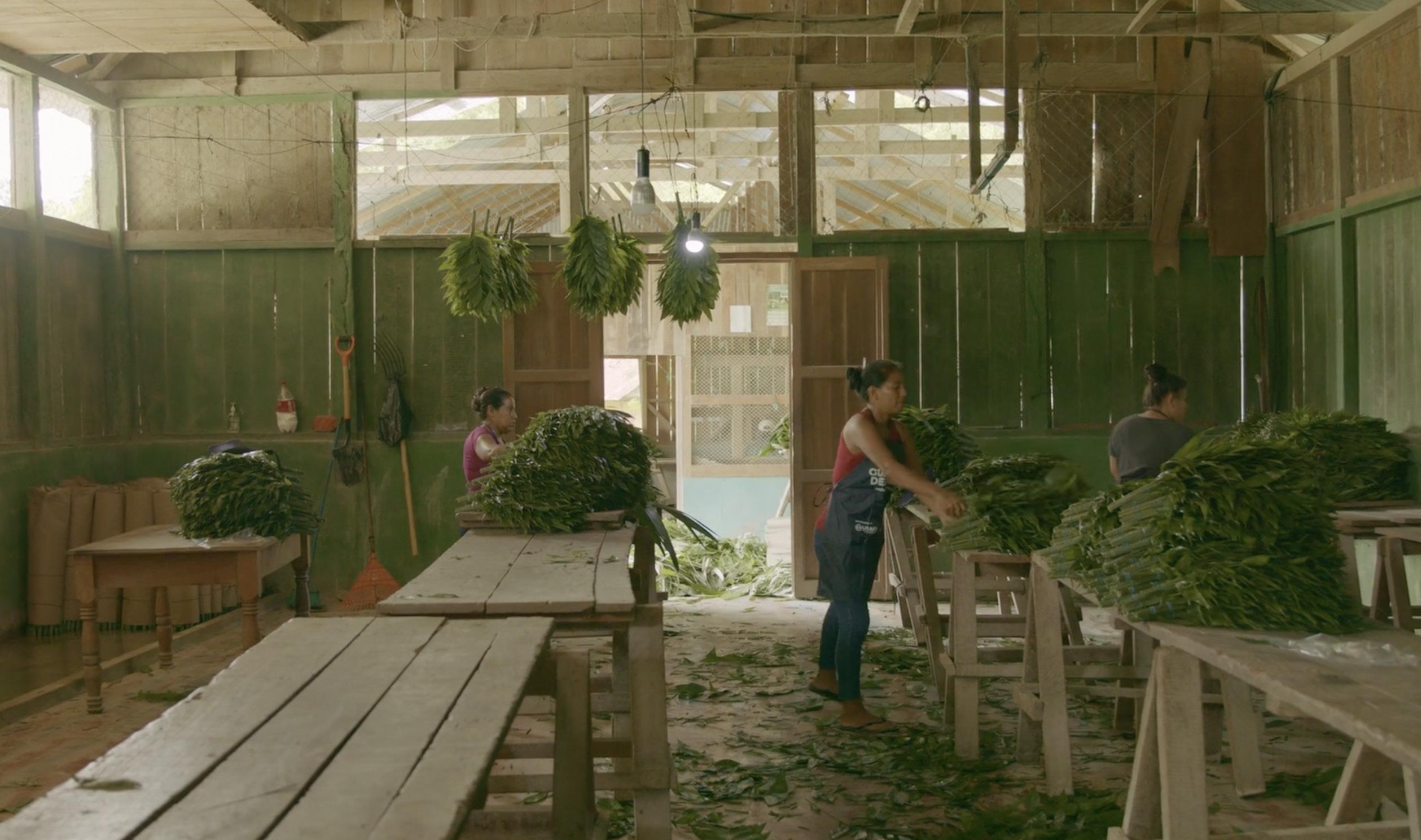
ISSUE 5 | AUTUMN 2022 | 11
WOMEN BUNDLE XATE IN THE COMMUNITY CONCESSIONS OF PETÉN, GUATEMALA.
PHOTO: NICE & SERIOUS
MEET OUR ALLIANCE MEMBERS
cATHY luDDEN & ErIc rOTHENbErg
CATHY LUDDEN & ERIC ROTHENBERG RAINFOREST ALLIANCE SUPPORTERS
When you have supporters who have stood beside you for years, even decades, it makes our global alliance feel like family. That’s why we are so grateful to have dedicated supporters like Cathy Ludden and Eric Rothenberg who have been with us for more than 20 years. Eric, who heads O’Melveny & Myers’ environmental practice in New York, also sits on the Rainforest Alliance’s Board of Directors.
Over the years, both Cathy and Eric have visited several of the farming and forest communities we partner with around the globe. Seeing our sustainable agriculture and community forestry work in action has been a rewarding and often enlightening experience. “It

thrilling and humbling to meet the farmers and foresters,” says Cathy. “They
and family security in peril.”
on
front lines of saving some of our most pristine rainforests and ecosystems—sometimes putting
personal
And with these visits comes renewed hope and motivation. “These are truly difficult times,” says Eric, “but we have seen the incredible beneficial impact of agricultural sustainability certification, forest conservation, and restoration.”
is
are
the
their
safety
“These are truly difficult times, but we have seen the incredible beneficial impact of agricultural sustainability certification, forest conservation, and restoration.”
12 | THE UNDERSTORY
ANITA NANDA
Anita Nanda’s passion for coffee farming has deep roots. Although the 59-year-old grew up in Bangalore, the seeds of her interest were planted during childhood visits to her grandfather’s coffee estate in Coorg, southwestern India. Eventually, coffee farming became an even more central part of her life. “I told myself that I’ll marry a coffee planter,” she says, “and so I did.” Her husband, Nanda Belliappa, always encouraged her enthusiasm for the work, and the couple jointly manages their farm. They began by expanding it—preparing uncultivated soil, procuring seedlings, and even setting up a plant nursery—and today their estate is Rainforest Alliance Certified.
Anita has a passion for acquiring new knowledge to help nurture her land. By learning the art of beekeeping, for example, she has come to understand the role that these pollinators play in the health of her farm. When she stopped using weedicide, she noticed an increase in earthworm activity. “From how the microbes in the soil affect the nutrient uptake in the plant, to how the bees help with pollination is all very interesting and interconnected,” she says.

By working in harmony with the natural world and paying attention to the details, Anita continues to feed the curiosity that was first piqued as a child on her grandfather’s coffee farm. “This is where I feel I have made the biggest difference,” she says, “viewing the estate as an ecosystem instead of just a plantation to grow crops.”
NANDA RAINFOREST ALLIANCE CERTIFIED COFFEE FARMER, INDIA
“This is where I feel I have made the biggest difference... viewing the estate as an ecosystem instead of just a plantation to grow crops.”
ANITA
ISSUE 5 | AUTUMN 2022 | 13
THIS YEAr MArkS Our 35TH ANNIvErSArY!
As we close out our 35th anniversary year, the Rainforest Alliance invites you to join us in accelerating our efforts to protect the planet and our entire global family.




We are so grateful for your donations and the many ways you have spread the word about our vital work. Now is the time for us to go even further. The next ten years will be crucial for protecting our planet against climate change and stopping—and even reversing—biodiversity loss. With our deep expertise and strong partnerships, the Rainforest Alliance is well-positioned to regenerate landscapes and transform broken systems. Help us scale, deepen, and accelerate our collective impact by donating HERE!

WOMEN OF OUR ALLIANCE
We know that women are essential to creating a more sustainable future. This autumn, we released a short film to celebrate the efforts of women leaders working to build their communities up while protecting local forests. Click the image below to watch this short film.

14 | THE UNDERSTORY
OUR
JOIN
ALLIANCE
JOIN Our cOffEE kl ATcH SErIES!
Our Coffee Klatch Series is a special opportunity for our dedicated supporters to connect with Rainforest Alliance program staff. Each quarter, we bring together a small group of supporters for a live virtual event with a member of the Rainforest Alliance team. In this conversational setting, participants can learn more about our work on the ground— from the successes that keep us motivated to the challenges we still need to overcome.
To receive more details about our upcoming speakers, and to learn how to join these intimate virtual events, please contact Arati Patel at apatel@ra.org.
You can also check out our last Coffee Klatch—Advancing Women’s Rights in Cameroon with Nadege Nzoyem, Director, Central Africa
lEAvE YOur lEg AcY
Have you included the Rainforest Alliance in your estate planning?
By making a planned gift to the Rainforest Alliance, you create a meaningful legacy for future generations. Donors who include the Rainforest Alliance in their estate plans or wills are among our most dedicated supporters and are welcomed into the Judith Sulzberger Legacy Society.
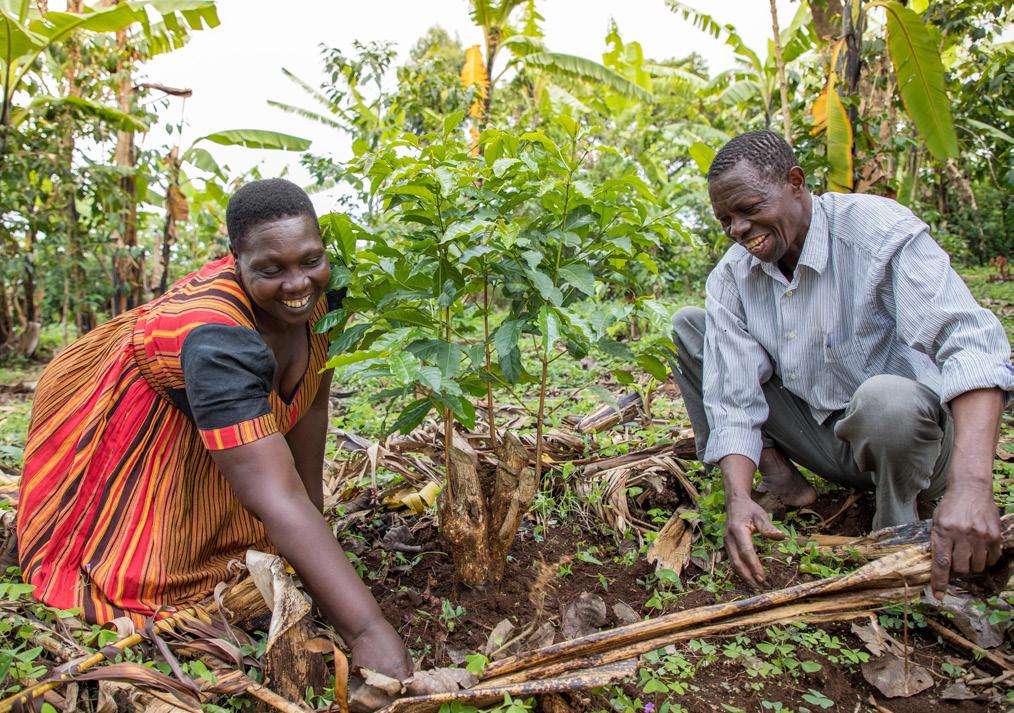
Join today and receive lifetime benefits including updates on our work, invitations to special events, and recognition in our annual report.
To learn more, visit www.rainforest-alliance.org/giftplanning or contact Gabriela Sanchez, Planned Giving Lead at gabrielasanchez@ra.org
ISSUE 5 | AUTUMN 2022 | 15
We’d love to hear from you! Please reach out directly to Gabriela Sanchez at gabrielasanchez@ra.org FOLLOW US: STAY IN TO uc H THANK YOU FOR BEING A PART OF OUR ALLIANCE. Underst ry The
































